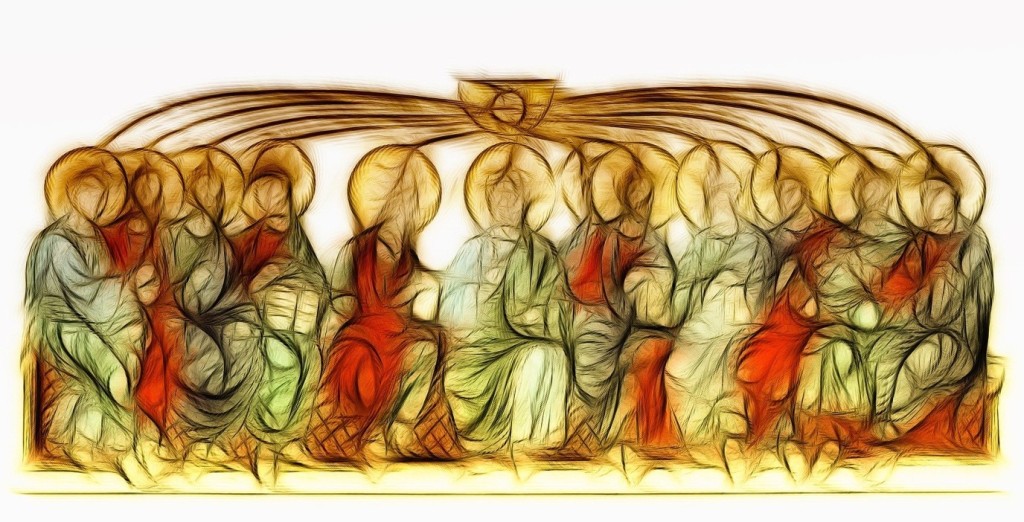
The Feast of Pentecost, when we celebrate the gift of the Holy Spirit to the Church, is one that reminds us that the Gospel message is for the whole people of God – all people.
Often, we turn immediately to the book of Acts and its glorious narrative of the Holy Spirit rushing through the looked room in wind and fire, and then the apostles bursting forth and proclaiming the Gospel with people ‘from every nation under heaven’ able to understand them. It brings home the universality of the Gospel message.
These is, however, another New Testament account of the giving of the Holy Spirit, found in John’s Gospel:
When it was evening on that day (the day of the resurrection), the first day of the week, and the doors of the house where the disciples had met were locked for fear of the Jews, Jesus came and stood among them and said, “Peace be with you.” After he said this, he showed them his hands and his side. Then the disciples rejoiced when they saw the Lord. Jesus said to them again, “Peace be with you. As the Father has sent me, so I send you.” When he had said this, he breathed on them, and said to them, “Receive the Holy Spirit.” (John 20.19-22)
Where I can imagine the Spirit in Acts arriving with a fanfare, here the Spirit comes with simple words and breath. Here, the Spirit has a quieter presence. Jesus’ voice is not yet joined by the apostles’ – but they are sent to proclaim the Gospel message (which is no less universal here than it is in Acts.)
The Holy Spirit was a gift to the church then and it is a gift to us, to the Church, now. Jesus says to us, “Receive the Holy Spirit.” But what happens when we’ve got it? It sounds risky – propelled from a room to share the message you’re called to share, or sent from a room to share it. It is something we’re all called to do.
It may be rather difficult to imagine proclaiming “the Gospel” from the rooftops, or even just while walking through the streets to those we meet. I think, though, we have a tendency to pigeon-hole “the Gospel” and reduce it to the bare facts of Jesus’ death and resurrection. Of course, that is part of the wider story of God’s love, God’s creation and God’s action within it, but it is that wider story – God’s love for creation, for all people – that immense, all-encompassing love (ultimately expressed in Christ incarnate) – that is the Gospel message. And so every time any of us challenge the things that violate the love, that violate the integrity of God’s creation, we are proclaiming the Gospel.
At St John’s, we seek to address injustices of many kinds; we seek inclusion; we seek to share the Gospel. But we don’t (and don’t have to!) all do it the same way. I’m sure that all of us have causes close to our hearts – whether to do with race, sexuality, gender, environment, poverty, or one of the many, many others – and we are called to respond. For some, that might mean being propelled out into the streets as if by rushing wind and fire, challenging taxi drivers with idling engines, or peacefully protesting. For some, it may be a much quieter response, breathed into being – moving away from plastic where there are other options, or writing to a local councillor or MP.
Whether the action comes from the fanfare of Acts or the “Peace be with you” of John, it is proclaiming the Gospel. It is what we – individually and in community, at St John’s and with the whole people of God – are called, and sent, to do. Our voices join with Christ’s as we seek justice and the restoration of God’s good creation, as we look to that time when all people are drawn to God and into that immeasurable love.
Lisa Bewick

Now read about some Hidden Voices in the New Testament here
